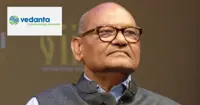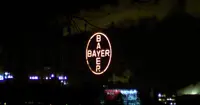FCC to hold net neutrality vote on 26 February
08 Jan 2015
FCC chairman Tom Wheeler yesterday publicly committed his agency to a 26 February vote on new net neutrality regulations, Tech Crunch reported.
The now-official timing was in line with market expectations. The chairman further indicated that the proposed rules would be circulated to the agency's commissioners on 5th February.
In his interview at the CES in Las Vegas this year, he hinted that he would employ Title II of the Communications Act for the reclassification of broadband access as a utility. President Obama had earlier called for similar action.
According to commentators, any FCC plan using Title II would be legally challenged and opposed vehemently by Congress.
The move, if his hints could be taken as a trial balloon, ran counter to the chairman's earlier preference for using a different legal foundation for net neutrality, though, of course, Title II was never out of the question.
Meanwhile, ZD Net reported that the United States Federal Communications Commission (FCC) had proposed increasing the minimum speeds allowed for broadband from 4Mbps down, 1Mbps up to 25Mbps down, 3Mbps up.
The FCC was responsible for reporting to Congress on the state of broadband in the US, and in the next Annual Broadband Progress Report, FCC chairman Tom Wheeler had indicated that he would likely raise the defined minimum benchmark for services to be able to be described as "broadband".
A circulated fact sheet showed the FCC was considering raising the definition to "reflect current consumer demands, deployment trends, and technological advances".
As a result, the draft report found that the broadband being deployed in rural areas, tribal land, and US territories was not being done in a reasonable and timely fashion.
Consequently the draft report found that 53 per cent of rural Americans lacked access to the 25Mbps/3Mbps speeds, and across the entire US, 17 per cent of -- or 55 million -- Americans lacked access to those speeds.
The draft report said the in urban areas all but 8 per cent of residents had access to 25Mbps.
The idea of raising the definition from 4Mbps to 10Mbps had been floated by the commission in its inquiry into advanced telecommunications deployments last year. The commission still faced resistance from US telecommunications giants AT&T and Verizon.
According to AT&T there was no evidence that less than 10Mbps was not "advanced".
According to Ars Technica, although the FCC would boost the benchmark speed, it would not be a requirement for government-funded broadband projects.





.webp)

.webp)























